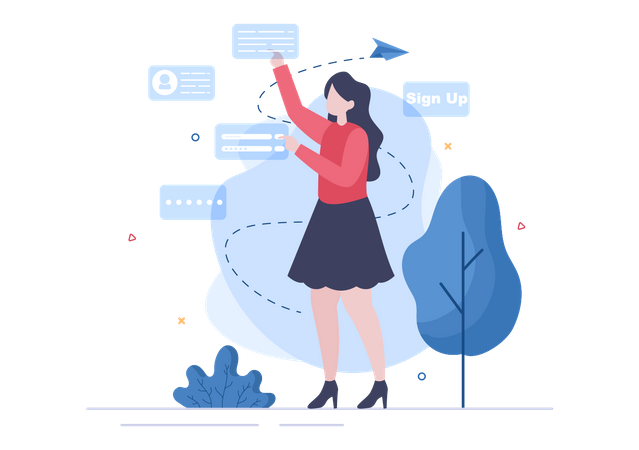As per Deloitte, 33% of employees expect augmentation of their jobs by AI. Moreover, a recent survey’s findings state that around 38% of enterprises have already started the AI’s Role in HRM while the rest 62% expect to bring it to us by the end of 2021. A survey of HR executives at IBM concluded that around 49% of employees believe AI will transform their payroll and benefits administration. Also, about 46% of them held a belief that AI will bring a transformation in their talent acquisition quality.
Through the adoption of analytics, AI empowering many HR processes today is a hugely anticipated trend that enterprises want to see working. While most experts foresee the AI–HR collaboration as an overhaul of the entire employee engagement process, businesses have started experimenting (quite successfully) with Machine Learning deployments and the results are no less than fascinating.
AI is used in predicting the outcomes within various aspects of an organization’s functioning. For instance, AI is used in predictive function by companies like Walmart for supply chain optimization, Under Armour for extending the audience base, etc.
AI use cases in enhancing recruitment – smarter screening, video interviewing, onboarding and more
AI’s Role in HRM is an excellent tool for identifying new hires so that there is a high probability of success and help with their placement on the right teams. It can also help by recommending the right career options & learning opportunities, and even suggesting the likelihood of flight risks.
Around 40-50% of companies use video-based interview process. These videos can be passed on to a database so that they can analyze a candidate’s mood; whether or not is the candidate telling the truth; and different things about the skills and education level of the candidate.
Automated short-listing to control biased hiring
Enterprises uncovering AI potential in their HR processes are aiming reduction of unconscious bias during screening based on age, gender, or race. That is, companies using AI for recruiting have seen a promising 71% decrease in cost per hire and an increase in efficiency by three times. The recruitment wing of HR is bogged under the task of scanning and filtering through countless applicants’ resumes.
Being criteria-based (based on skills, experience, etc.), conventional systems lack flexibility, and AI can indeed overcome that. Given the ability to learn and grow, AI systems will develop better resume-matching capability with every hiring cycle and scan through thousands of resumes received from 3rd party associates.
Boosting candidate outreach and assessment – attracting more quality applications
AI sees widespread use in bringing a lot more traffic to a company’s hiring page by drawing candidates’ attention. Many job-finding platforms such as LinkedIn, Glassdoor, etc. employ ML algorithms for the same. Using data acquired from user’s cookies, search history, clicks, connections, etc. these algorithms help recruiters as they enable the diversion of attention of candidates towards their organizations.
Using applications that merge digital video and predictive analysis, enterprises are excited about the potential AI’s Role in HRM which has to offer to recruiters. As per recent findings, AI can help with the assessment of candidates speeding up the process without compromising on quality. For example, a video call-based interview of 15 minutes can be turned into a set of 20,000 data points on facial movements, intonation, word choice, etc. to assess candidates.
Slick on-boarding with automation
On-boarding gets extreme with mundane tasks thereby distracting the HRs from their usual job responsibilities that they ought to do – cultivating skills, addressing issues, and producing more opportunities within the organization. AI has an exciting role to play here. Bots are deployed as virtual colleagues who’ll help with creating new profiles, streamlining resumes, and also answer the staff with questions on insurance, employee benefits, organization policies, etc.
Responding to Applications and answering candidates’ queries
A company is nothing short of a brand. According to a report, around 22% of millennia await a response of getting in touch with a brand within 10 minutes. The importance of speed in reaching customers, or in this case, applicants, is of utmost importance these days, as it can be a decisive factor in whether you lose a good candidate to a highly responsive one. Moreover, queries concerning applications, etc. have to be answered. So, AI can step into this and expedite the task.
Accurate Identification of Attrition Patterns
Employees putting down papers at the 11th hour can get riskier for the business, no matter the notice period they serve. Rising attrition rates have been worrying, and most HRs have confessed to not being able to find a practical solution. Although enterprises are trying various ways to control the attrition rates, the ability to predict the untimely havoc will have extensive support.The prediction of attrition can help do away with attrition altogether.IBM Watson is working towards building such a predictive model so that it can detect the most typical reasons that may contribute to attrition by analyzing a structured data file fed into it. It then generates a score for every employee based on the probability calculated of them quitting their jobs.
There is a constant dynamism of capabilities and skills we need at work. AI applications can intelligently recommend courses and videos based on your job role and read the documentation and create micro-courses, etc. Such inclusions have encouraged the employees to foresee growth within the organization and reconsider their decisions to move on.
Going Ahead – Whether AI will replace us or support us is a hot topic to debate
Many talent researching and hiring agencies in the world believe that automated tasks will not only reduce the no of people deployed but will also fasten smaller tasks. Ultimately, the saved resources are utilized for more challenging business processes. While AI may replace the aspect of management, it won’t be able to become a replacement for leaders for we cannot forge soft skills that empower, develop and motivate employees. Moving forward in the 4th quarter, businesses must experiment with hybrid processes, bringing the best of humans and systems onboard.
AI in HR is still on its way to getting to the point of the critical mass of data. As soon as the companies inculcate AI in their workplaces, the easier will it be for them to lead. Organizations that have employed AI have already seen impressive results, such as an increase of around 43% in employee retention and 32% in the productivity of employees. I wish this article has helped you a lot in knowing about AI’s Role in HRM for business growth.




